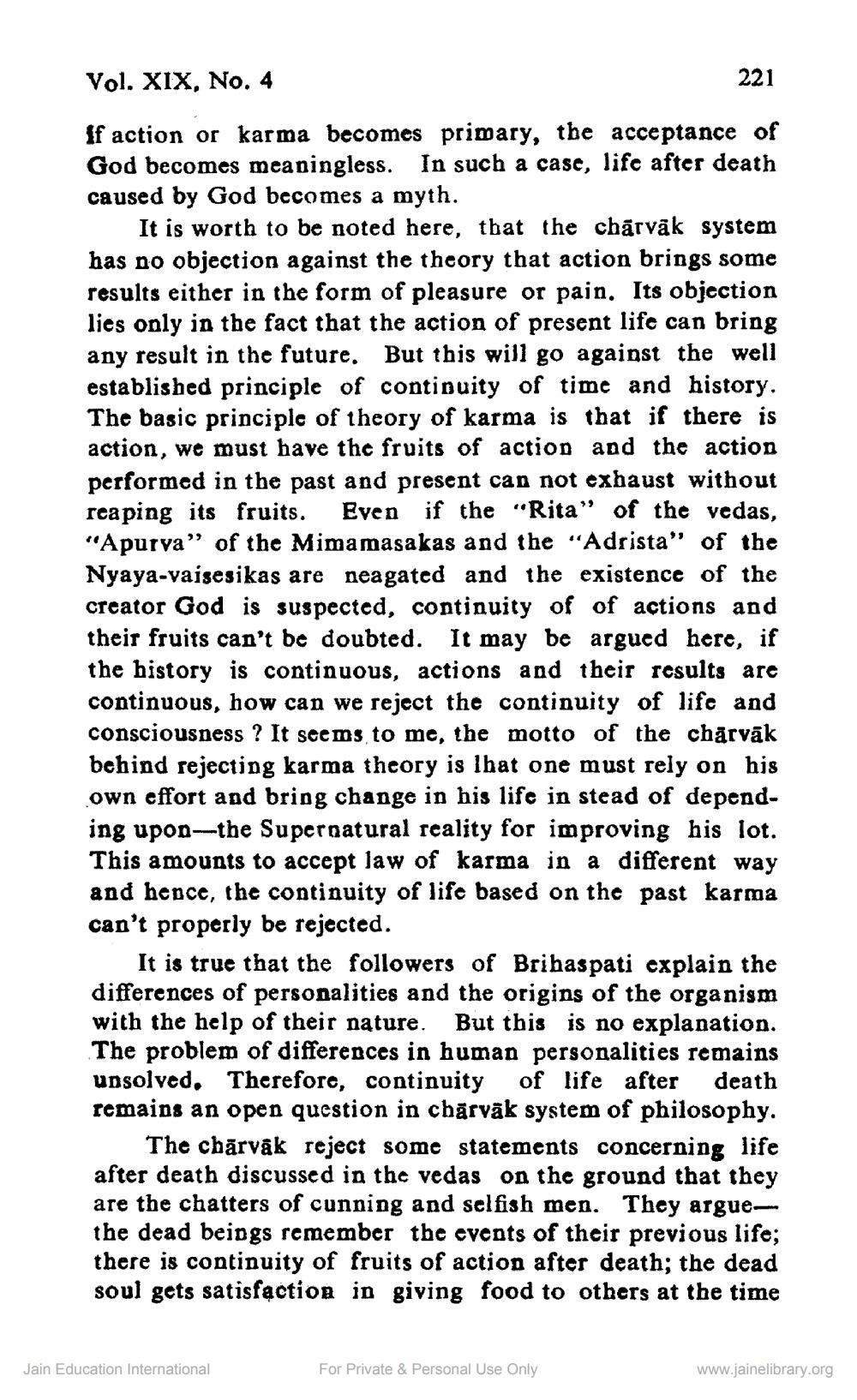________________
Vol. XIX, No. 4
221
If action or karma becomes primary, the acceptance of God becomes meaningless. In such a case, life after death caused by God becomes a myth.
It is worth to be noted here, that the chārvāk system has no objection against the theory that action brings some results either in the form of pleasure or pain. Its objection lies only in the fact that the action of present life can bring any result in the future. But this will go against the well established principle of continuity of time and history. The basic principle of theory of karma is that if there is action, we must have the fruits of action and the action performed in the past and present can not exhaust without reaping its fruits. Even if the "Rita" of the vedas, "Apurva” of the Mimamasakas and the “Adrista" of the Nyaya-vaisesikas are neagated and the existence of the creator God is suspected, continuity of of actions and their fruits can't be doubted. It may be argued here, if the history is continuous, actions and their results are continuous, how can we reject the continuity of life and consciousness ? It seems to me, the motto of the chārvāk behind rejecting karma theory is lhat one must rely on his own effort and bring change in his life in stead of depending upon--the Supernatural reality for improving his lot. This amounts to accept law of karma in a different way and hence, the continuity of life based on the past karma can't properly be rejected.
It is true that the followers of Brihaspati explain the differences of personalities and the origins of the organism with the help of their nature. But this is no explanation. The problem of differences in human personalities remains unsolved. Therefore, continuity of life after death remains an open question in chārvāk system of philosophy.
The cbārvāk reject some statements concerning life after death discussed in the vedas on the ground that they are the chatters of cunning and selfish men. They arguethe dead beings remember the events of their previous life; there is continuity of fruits of action after death; the dead soul gets satisfaction in giving food to others at the time
Jain Education International
For Private & Personal Use Only
www.jainelibrary.org




